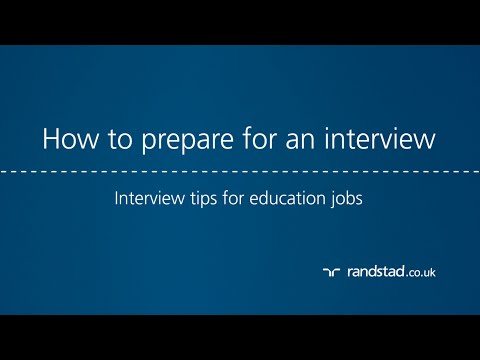A teaching assistant is sometimes called a classroom assistant, educational assistant or teacher's aide, often abbreviated to EA or TA respectively. This is a position given to a person who supports a teacher in the classroom.
It's important to remember that while people in teaching assistant jobs are not qualified teachers and are not expected to be, an interest and knowledge of current educational trends and procedures is vital for a successful interview.
Teaching assistant interview tips.
The first thing candidates waiting to be interviewed for a teaching assistant position should do is relax.
Once they are in front of an interview panel, it's equally important to remember that it's okay to wait a minute before answering a question, and a short pause is fine if it's succeeded by a considered, coherent answer.
Whenever possible, draw on practical examples: in the case of a question like, "What would you do if a child was throwing paper around the classroom?" it's possible to use the SAR technique to answer (Situation, Action, Result). The answer could be a simple response (I would ask them firmly but calmly to stop) or descriptive and use the technique to describe a similar situation the candidate has been in themselves.
Roughly speaking, questions asked at a teaching assistant interview can be broken down into five areas: the role of the teaching assistant; the school; the interviewee's experience and skills; teaching and supporting teaching; and communication and managing difficult situations. If you don't yet have an interview, see these tips on how to write a teaching assistant CV.
If you're looking for more interview advice, our education recruiters have outlined their top interview prep tips in the clip below:
<h3>Typical interview questions for teaching assistants.</h3>
<h5>What do you think the role of a teaching assistant is / What will your duties include as a teaching assistant?</h5>
<p>Some of the duties of a TA are: Helping teachers prepare for lessons by, for example, putting out equipment before a lesson starts or photocopying papers; listening to children reading and reporting back to the teacher should any issues arise, and helping children who need extra help in literacy or numeracy. A teaching assistant is there to support a teacher in the classroom.</p>
<h5>How would you support this school's programme of extra-curricular provision?</h5>
<p>Any interviewee can expect to answer a number of questions about the school, so learning a bit about the place beforehand is vital. Prior to the interview, find out as much as possible about the school's extracurricular activities, Ofsted results, what type of backgrounds the children come from, etc. so that the answer provided is well-informed.</p>
<h5>What would you do if a child complained they were bored?</h5>
<p>This question may be best answered with the SAR technique (see above). Try to remember a similar situation when a bored child was amused in a stimulating, educational and non-disruptive way.</p>
<h5>What makes a good lesson?</h5>
<p>While teaching assistants don't make the lessons, they do provide invaluable help to prepare them, and a successful candidate for an assistant teaching job is one interested in the role of a teacher and prepared to support them 100%.</p>
<h5>Are you good at organising yourself and other people?</h5>
<p>The interviewer(s) is looking for a well-organised person who can act as a teacher's aide. A successful candidate should be able to illustrate their organisational skills, based upon teaching experience or otherwise.</p>




